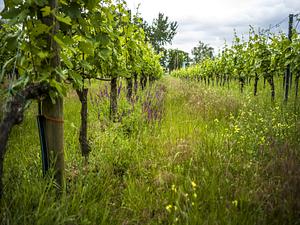
Leading Wachau winemaker Franz-Josef Gritsch is leaving Vinea Wachau, meaning that from the 2023 vintage onwards, his award-winning wines will be exclusively classified by the DAC pyramid of origin rather than by designations such as Federspiel and Smaragd.
The acclaimed winemaker believes Austria’s three-tiered DAC system is better for the future amid a changing climate and offers more clarity to international consumers.
The Gritsch family has been a member of the Wachau regional winegrowers’ association since it was formed back in 1983. But from the 2023 vintage, Franz-Josef Gritsch’s wines will no longer bear the Vinea Wachau designations Federspiel and Smaragd on their labels. Instead, the Wachau winemaker has decided to classify his wines, which are exported to 13 countries, exclusively using the DAC pyramid of origin.
Alcohol levels do not guarantee quality
“Vinea Wachau’s three categories follow the traditional Germanic system, which requires a minimum alcohol content for each quality category. This made sense in earlier times when we still had to worry about ripeness but now, with every year that goes by, we feel increasingly that this categorisation does not stand up to climate change. I think it is no longer up to date,” says Franz-Josef Gritsch. “An alcohol classification says nothing about wine quality”. This is particularly true internationally. “Our partners and traders in various export markets tell us constantly that it is now obsolete to classify wine by its alcohol level.”
Gritsch sees much greater potential in the internationally recognised DAC origin-based system. “I regret that Vinea Wachau is not ready for change,” he says. He believes Vinea Wachau missed the opportunity to adapt to current circumstances when the region was awarded DAC status in 2020. In his opinion, running two parallel classification systems just leads to confusion for consumers.









